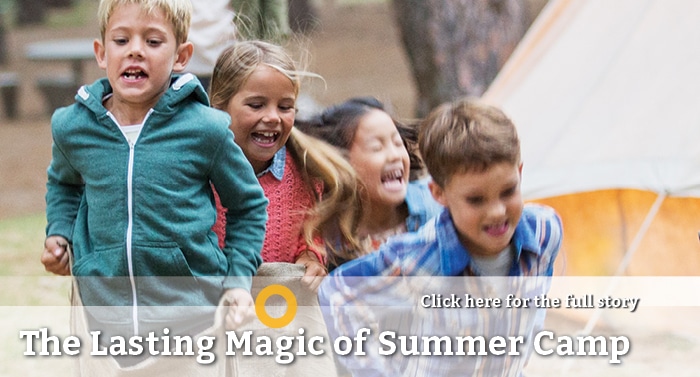By Rachael VanLandingham
There’s something sacred about the smell of sunscreen mixed with bug spray, the crunch of gravel under sneakers, and the freedom of living in a slightly-too-big T-shirt for a week straight. If you know, you know: it is camp.
As someone who works in youth education—and spent summers doing both day camp through my local parks and rec and sleepaway camp up in Prescott—I can tell you firsthand that camp is so much more than canoe races and friendship bracelets. Those summers sparked something bigger than just memories. It was the first time I really was able to be my whole self outside of school, sports, and family expectations.
And here’s the best part: it doesn’t matter if your child is heading to a rustic sleepaway camp in the mountains or a high-energy day camp closer to home. The benefits are real, lasting, and often show up in the smallest, most surprising ways.
- Life Skills Happen Naturally at Camp
At camp, children pick up practical, hands-on skills—without the usual pressure of grades or performance. They learn how to paddle a kayak, how to speak up in a group, how to compromise when two people want the same bunk cubby. They learn to trust themselves in new situations, which might mean climbing a rock wall, auditioning for the talent show, or simply making a new friend.
One of the most beautiful things about camp is that it lets children try, fail, try again, and laugh through the process. That kind of freedom builds resilience, confidence, and patience—skills they’ll carry with them far beyond the summer.
- Unplugged is the New Luxury
Let’s be real: in a world where even 5-year-olds know how to navigate Netflix better than we do, camp is one of the last sacred spaces where children get to unplug from screens and reconnect with people, play, and nature. And while they may grumble at first, by the end of the week they’ll probably be leading a camp song (real or imaginary) and explaining the rules to a game they made up to younger campers.
When the distractions disappear, children rediscover imagination, silliness, and connection. Suddenly, a stick becomes a wand. A cardboard box becomes a puppet theater. A group of campers becomes a team.
- Parents Grow Too
Sending your child to camp—whether for a week or a month—is a leap of faith. And while it may bring nerves (the good kind and the anxious kind), it’s also a chance to watch your child stretch their wings.
Talk about camp early, and lead with excitement. Let your child help choose what to pack, explore the camp website together, and remind them that it’s okay to feel a little nervous and a bit braver at the same time. Whether they’re heading off to sleepaway camp or spending their days at a local program, the experience builds independence, confidence, and friendships—with the bonus of clean laundry if they’re home by dinner.
- Friendships Beyond the Week
Camp friendships form fast and run deep—whether it’s over shared bug spray, kayak races, or a group skit gone hilariously wrong. When children spend full days immersed in play, teamwork, and unplugged connection, they build relationships that feel real and lasting. It’s not about how long they’re together, it’s about how fully they show up, and how supported they feel while doing it.
In a world that moves fast, camp invites children to slow down, tune in, and grow into themselves. Whether it’s for a single week or the whole summer, whether they sleep under the stars or come home at 3pm, camp gives children the space to stretch, stumble, and start to understand just how strong they really are.
So, get ready—pack the bug spray. Toss in that well-worn water bottle and those “camp shoes” you don’t mind losing to the mud. Do not forget the note that says, “You’ve got this,” because trust me—they do.
And when they come home, you’ll see just how much they brought back.
Rachael VanLandingham is the Director of Youth Education and Engagement at Congregation Beth Israel in Scottsdale

